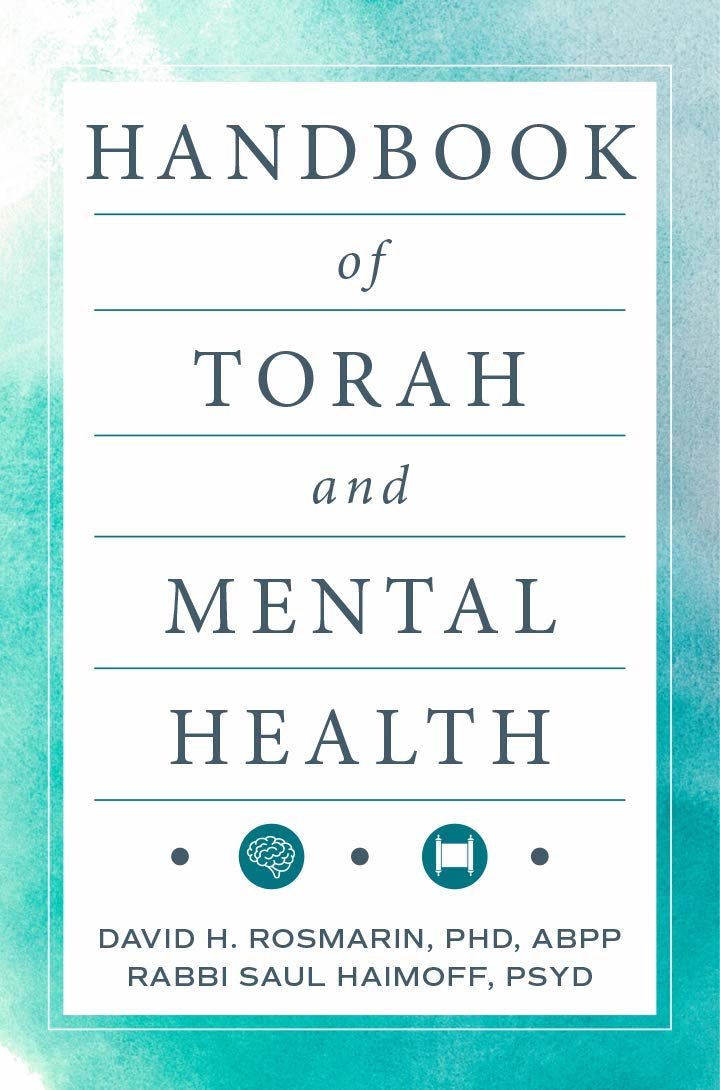‘Handbook of Torah and Mental Health’
The Handbook of Torah and Mental Health by David H. Rosmarin, PHD, ABPP, and Rabbi Saul Haimoff, PSYD, includes a brief collection of Torah sources to help anyone to face life’s challenges. These include cognitive behavioral therapy, dialectical behavior therapy, general psychotherapy, anxiety, obsessions, compulsions, depression, parenting, mental health and well-being.
The following are two excerpts on Spirituality, and Mental Health:
Going to synagogue may lead to a longer, healthier life
“As Rabbi Yehoshua ben Levi would say to his sons: Arrive early and stay late in the synagogue, so that your lives will be lengthened. Rabbi Acha, son of Rabbi Chanina provided a source: Happy is the man who listens to Me, watching daily at My gates, guarding My door posts (Mishlei 8:34). And the following verse states: For he who finds Me finds life and obtains the favor of G-d” (ibid.,v.35). Talmud Bavli, Berachos 8a.
“This source teaches that regularly attending synagogue can add years to one’s life.
“Interestingly, a significant body of scientific research has supported the empirical validity of this ancient teaching. Across different religions, weekly attendance of religious services is associated with greater longevity and health. Many theories have been proposed to explain this phenomenon. Most experts agree that the social support and opportunities provided by attending public prayer services are key contributors toward extending the lifespan, since social interaction is one of the strongest predictors of life expectancy. However, some studies have still found benefits of attending services even after controlling for levels of social support.
“Either way, it is particularly recommended that old adults — especially those who suffer from depression, anxiety, or physical ailments — maintain social activity and community attachment. To that end, regular attendance at a house of worship is a proven method to help accomplish that goal.”
Practicing gratitude improves happiness and satisfaction
The principal of this mitzvah (of honoring one’s parents) is that it is proper for a person to recognize and show gratitude to people who were good to him, and not be ungrateful, because that is bad and the most repulsive attribute before G-d and people. Sefer Hachinuch, mitzvah 33.
“Gratitude is a core value in Judaism. In fact, the etymology of the word “Judaism” is from the name Judah, son of Jacob and Leah, whose name means ‘gratitude.’ Jewish prayer and practice is replete with opportunities to express gratitude to G-d. For instance, the first words we utter in the morning are ‘I give thanks to You,’in acknowledgement of our gratitude for being alive for a new day.
“This may explain why research shows that greater levels of gratitude are associated with positive religious traits, such as elevated levels of belief, attendance of services, and engagement in prayer. Practicing gratitude regularly in the form of listing things to be grateful for or verbally thanking others has incredibly positive effects.
“With regard to mental health research, studies on gratitude exercises found that they can reduce depression, worry, and body dissatisfaction and even improve quantity and quality of sleep.”
A personal note: The above sentiments as expressed by the authors quoted are most timely and deserve wide readership.

 47.0°,
Mostly Cloudy
47.0°,
Mostly Cloudy 




